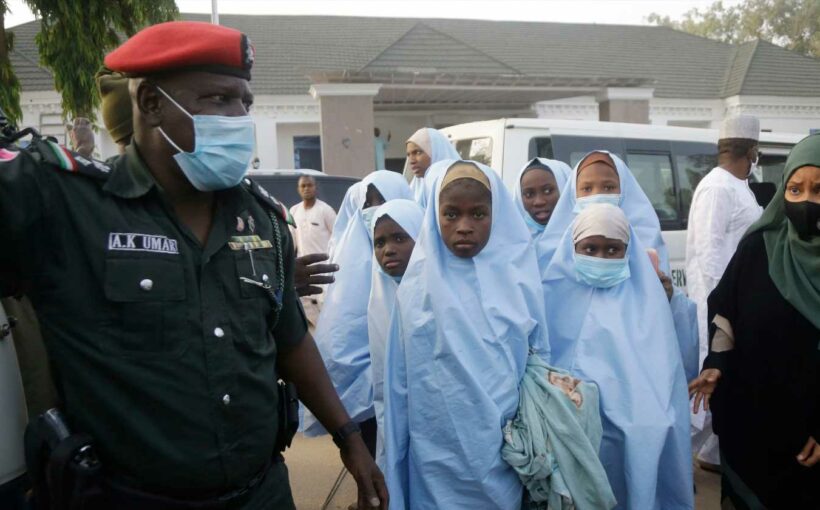Shortly after midnight last Friday, gunmen burst into the dormitory of a girls boarding school in Northwest Nigeria and rekindled a nightmare that, for most of the world, had lain dormant for almost seven years.
In the Government Girls Secondary School of the small town of Jangebe, hundreds of students had been sleeping in bunk beds when they heard gunshots followed by voices ordering them to gather in the courtyard. Fifty-five ran and hid in a bathroom or behind furniture where panicked parents found them hours later. By then, about 300 of their classmates, ages 11 to 17 had been marched into a forest.
Tuesday morning the girls were set free, stirred from their sleep by their captors’ celebrations that a ransom had arrived.
“You idiots, wake up, the money has come,” several of the girls recalled being told.
Nigeria’s cycle of kidnappings
Nigeria is trapped in a cycle of school child kidnappings that recall one of the most infamous abductions in recent years: In early May 2014, more than two million people tweeted #BringBackOurGirls, a clarion call to free teenagers taken from the Nigerian town of Chibok by terrorist group Boko Haram. That hashtag peaked after a few days, before social media moved onto its next viral cause, the Ice Bucket Challenge. To this day, most people don’t know how these millions of tweets propelled a sequence of events that involved drones scouring Lake Chad and millions of euros being handed to Boko Haram, inadvertently feeding a predatory business model that persists to this day.
Source: Read Full Article
